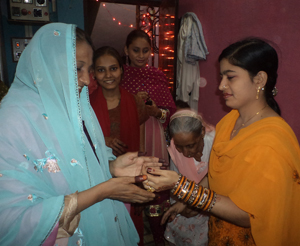
Piping hot coffee, red roses, sherbet and ice cream—that’s the fare at some weddings in Bhiwandi, a textile manufacturing town near Mumbai. There are no bands playing loud music, no firecrackers being burst and no caterers scurrying about setting tables. The bride and groom dress simply, with the guests limited to 25 odd close relatives and friends.
This was not always the case. The change came about in 2011, when a group of residents came together and started the Tanzeem Khuddam-e-Millat (Organization of the Community’s Servants), which advocates simple and inexpensive weddings. Parents are encouraged to give the money set aside for dowry to their daughter as her share in the family property.
This practice was highlighted in the Big Fat Indian Wedding episode of the show where members Akhtar Kazmi and Sufiya Momin spoke about how these simple marriages helped their community.
Akhtar Kazmi says the changing the mindset wasn’t too difficult. This is because traditionally, families here have always held simple weddings. “Only in the last 15 years did people start spending lavishly, putting a lot of pressure on those who could not afford costly weddings,” he says. “Families would incur debt to get daughters married.”
That has changed now. “Initially, people were embarrassed about cutting down on the expenditure. Now, low-cost weddings are held quite openly and with pride,” says Sufiya Momin, a school teacher.
Take Bashama, who got married recently. Although her family could afford to spend Rs 8–10 lakhs, her father Sheikh Hasibullah insisted on keeping it simple and spent only Rs 50,000. The guests were treated to coffee and he gifted his daughter a laptop along with a copy of the Quran. “Our relatives resisted the idea initially and even I was not very happy,” admits Bashama. “Now I realize that simple is beautiful.”